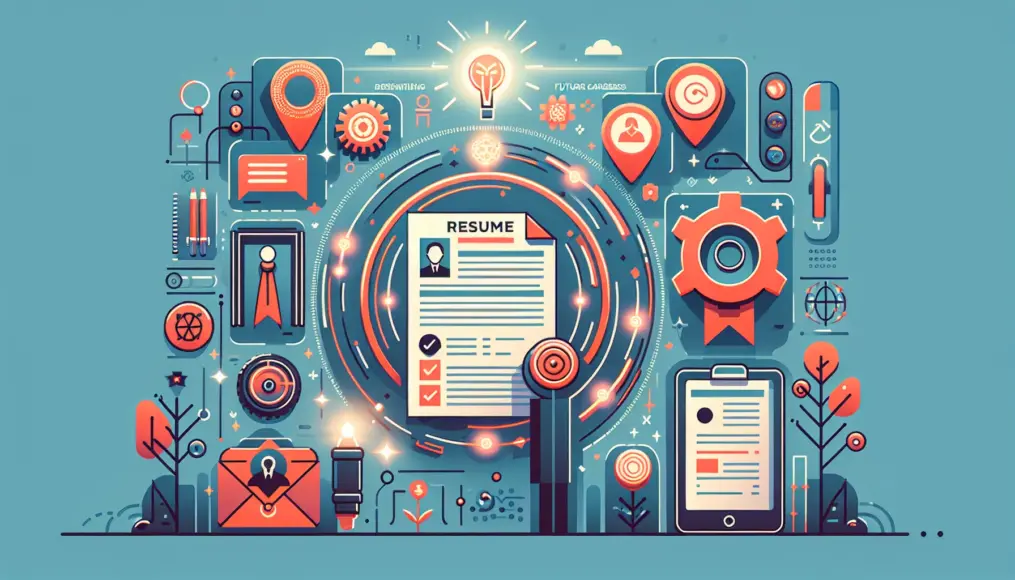To excel in your first interview, effectively using reverse questions is crucial. While many job seekers are busy preparing for common interview questions, did you know that reverse questions can be an excellent opportunity to showcase yourself? By demonstrating interest and enthusiasm towards the interviewer, you can leave a lasting positive impression.
Reverse questions are not just any queries; they serve as a significant means to convey your personality and thought process. With thorough preparation, you can ask impactful questions that resonate with your interviewer, bringing you a step closer to success in your job search. In this article, we will explore the importance of reverse questions, tips for crafting effective inquiries, and specific examples to guide you. So, be sure to read through to the end!
- Understand the Importance of Reverse Questions
- Timing and Content for Effective Questions
- Examples of Specific Reverse Questions and What to Avoid
Understanding the Importance of Asking Questions in Interviews
In a first interview, asking questions plays a crucial role. Many candidates tend to focus solely on showcasing themselves, but through thoughtful questions, they can express their interest and enthusiasm for the company and the interviewer. These questions provide an excellent opportunity not just to gather information but also to convey one’s own thoughts and values.
By effectively utilizing this opportunity, candidates can leave a positive impression on the interviewer. Particularly, questions based on company research or inquiries related to one’s career can make the interviewer feel that the candidate is genuinely considering their fit for the role. In this section, we’ll delve into what asking questions entails and the kind of impression it can leave.
What Are Reverse Questions?
Reverse questions refer to the moment at the end of an interview when the candidate poses questions to the interviewer. This is considered a part of the interview process and can be seen as an extension of self-presentation. Through these questions, candidates can deepen their understanding of the company while also expressing their own interests and concerns. For interviewers, it serves as an essential means to gauge the candidate’s mindset and motivation.
Asking reverse questions isn’t just a formality; with proper preparation, it can significantly alter the impression one leaves during the interview. By asking specific questions rooted in the company’s culture, candidates can demonstrate a proactive attitude.
- Asking questions is a vital part of the interview process
- It’s a great chance to show interest in the company
- It serves as a means to convey your thoughts
The Impression That Asking Questions Leaves
Reverse questions provide an opportunity to showcase your communication skills and depth of thought. Interviewers can gauge your personality and seriousness about your career based on the questions you ask. By posing appropriate reverse questions, you can make the interviewer think, “This candidate is really interested in our company,” which can lead to a favorable impression.
Beyond simply acquiring information, these questions also serve as a way to communicate your own value. By inquiring about specific aspects of the company culture or job responsibilities, you can impress upon the interviewer that you are well-suited to thrive in that environment. In this way, asking questions becomes an essential aspect of the job search process.
- Asking questions demonstrates communication skills
- The right questions can leave a positive impression
- It serves as a means to convey your value
Tips for Effective Reverse Questions
To make your reverse questions successful, there are several key strategies to keep in mind. The timing of your questions and thorough company research are particularly vital. By focusing on these aspects, you can leave a positive impression on the interviewer and create opportunities to showcase your own strengths. In this section, we’ll explore specific points to help you craft effective reverse questions.
First and foremost, it’s crucial to gauge the right moment to ask your questions. Reverse questions typically come at the end of an interview, but sometimes it’s perfectly acceptable to raise a question naturally during the flow of conversation. By recognizing the appropriate timing, you can demonstrate your interest to the interviewer.
Recognizing the Right Moment for Questions
The timing of your reverse questions should align with the flow of the interview. If the interviewer is discussing the company or its operations and you find a relevant question popping into your mind, it’s best to ask it right then and there. Questions based on the information provided by the interviewer show that you are engaged and attentive.
Additionally, when you reach the end of the interview and the interviewer asks, “Do you have any questions for me?” this is another prime opportunity for your reverse questions. By presenting well-prepared inquiries at this moment, you can convey your enthusiasm and interest. Engaging in reverse questioning not only demonstrates your proactive attitude but also leaves a strong, positive impression.
- It’s crucial to recognize the right timing for your questions
- Questions based on the interviewer’s comments are particularly effective
- Seize the opportunity to ask reverse questions at the end of the interview
Leveraging Company Research
Conducting thorough company research allows you to formulate more specific and insightful reverse questions. By gaining a solid understanding of the company’s values, culture, and operations, you can pose deeper questions to the interviewer. Particularly effective are inquiries related to the company’s recent projects or news, as these demonstrate your genuine interest.
For instance, asking about a new product the company recently launched can showcase your engagement with their activities. Additionally, questions regarding the company’s vision or goals can also leave a favorable impression. Reverse questions grounded in the information you’ve gathered through company research can deepen your understanding of the interviewer and help you highlight your own appeal.
- Conducting company research makes your reverse questions more specific
- Questions about recent projects are particularly effective
- Inquiries about the company’s vision can also create a good impression
Good and Bad Examples of Questions to Ask in an Interview
Asking questions at the end of an interview is a crucial element, but the impression you leave on the interviewer can vary greatly depending on your choice of questions. Good questions resonate with interviewers and convey your enthusiasm and genuine interest in the company, while poor questions can leave a negative impression. In this section, we’ll explore examples of impactful questions to ask, as well as those you should avoid.
Examples of Good Questions to Ask
When it comes to great questions, those that inquire about the company culture or team dynamics are particularly effective. For instance, asking, “What is the team atmosphere like here?” demonstrates your serious consideration of how you would fit into the company. Additionally, questions related to specific projects or job responsibilities can leave a positive impression. On the other hand, you should steer clear of questions about salary or benefits, or overly generic inquiries. These types of questions can make it seem like you lack genuine interest in the role.
Questions That Resonate with Interviewers
Questions that connect to the company’s values or culture tend to resonate well with interviewers. For example, asking, “What have been some standout moments from recent projects?” shows your interest in the company’s activities and achievements. Such questions not only deepen the conversation with the interviewer but also help you get a better sense of the company’s environment. It’s essential to prepare thoroughly and ask questions that reflect your interest in the role.
- Questions about company culture and teams are effective
- Inquiries related to projects and job responsibilities are impressive
- They can deepen the conversation with the interviewer
Questions to Avoid
Conversely, you should avoid questions that directly pertain to salary or benefits. For example, asking, “What is the salary for this position?” or “How much vacation time do I get?” can come off as overly focused on personal gain, which doesn’t create a favorable impression. Additionally, overly general questions like “What are the strengths of your company?” should also be avoided, as these can be easily answered with a bit of research and do not demonstrate genuine interest.
By steering clear of these types of questions, you’ll leave a more favorable impression on the interviewer. Asking thoughtful questions is an opportunity to showcase your enthusiasm and interest, making it vital to choose the right topics.
If you’re looking to deepen your understanding of reverse questions in interviews, check out this article: “Stand Out in Temp Interviews! Tips for Success with Reverse Questions.” This blog provides detailed insights into the importance of reverse questions, how to craft specific inquiries, and what to avoid, so be sure to take a look.
- Avoid questions about salary and benefits
- Generic questions can signal a lack of interest
- Aim for questions based on prior research
The Benefits of Making Reverse Questions a Habit
Incorporating reverse questions into your routine can have a significant impact not only on your job search but also on your future career. By asking reverse questions during interviews, you can convey your thoughts and enthusiasm while also unlocking opportunities for personal growth and career advancement. In this section, we’ll explore the specific benefits of making reverse questions a regular practice.
One of the first advantages of habitual reverse questioning is the increased likelihood of career advancement. By actively engaging in questioning—not just in interviews but also in your daily work and interactions—you deepen your understanding and gain insights into others’ perspectives. Furthermore, this practice can facilitate self-improvement by allowing you to discover new viewpoints and realizations that contribute to your personal development.
Opens Doors to Career Advancement
Making reverse questions a habit can expand your opportunities for career growth. When you cultivate a questioning mindset not only in interviews but also in your everyday tasks, you become more trusted in the workplace. By showing genuine interest in others and seeking their opinions, you can build stronger relationships.
Moreover, the insights you gain from reverse questions can help you reassess your work and career plans. Embracing new ideas and perspectives often leads to skill enhancement and new challenges. By adopting this practice, you can enrich your future career in meaningful ways.
- Reverse questions broaden opportunities for career advancement
- A questioning attitude in daily tasks builds trust
- Use gathered insights to revisit your career plans
Fosters Personal Growth
Reverse questions also contribute to personal growth. By constantly asking questions, you can deepen your understanding and broaden your perspective. Listening to others’ thoughts and opinions allows you to gain insights that you may not have considered before.
Additionally, reverse questions can lead to learning new knowledge and skills. During interviews or in your daily work, posing questions about topics you’re interested in enables you to gain a deeper understanding. Thus, making reverse questions a habit increases your chances for personal development.
In summary, adopting reverse questions as a regular practice is crucial for both career advancement and self-growth. If you’re interested in specific techniques for asking reverse questions during interviews, check out this article on “Techniques for Impressive Reverse Questions in First Interviews!.” It provides tips and examples that are sure to help you leave a positive impression on interviewers.
- Reverse questions help deepen self-understanding
- Listening to others’ opinions provides new perspectives
- Increases opportunities to learn deeply about topics of interest
Summary
Asking reverse questions during a first interview is a crucial way to demonstrate your enthusiasm and interest. By posing thoughtful questions at the end of the interview, you can shift from being just another candidate to someone who shows genuine interest in the company. The effectiveness of your questions—both their content and timing—can be significantly enhanced through thorough preparation and research about the organization.
Moreover, making reverse questioning a habit can lead to career advancement and personal growth. Cultivating a questioning mindset not only in interviews but also in your daily work can help you build trust and increase opportunities to gain new knowledge and perspectives. Keep these points in mind as you navigate your job search.
- Reverse questions provide a valuable opportunity to leave a positive impression on interviewers
- Preparation is key to timing and crafting effective questions
- Developing a habit of reverse questioning can open doors for career growth
Leverage reverse questioning effectively to achieve success in your job search. We’d love to hear about your experiences and thoughts in the comments!



Comment